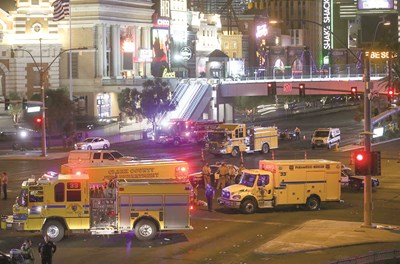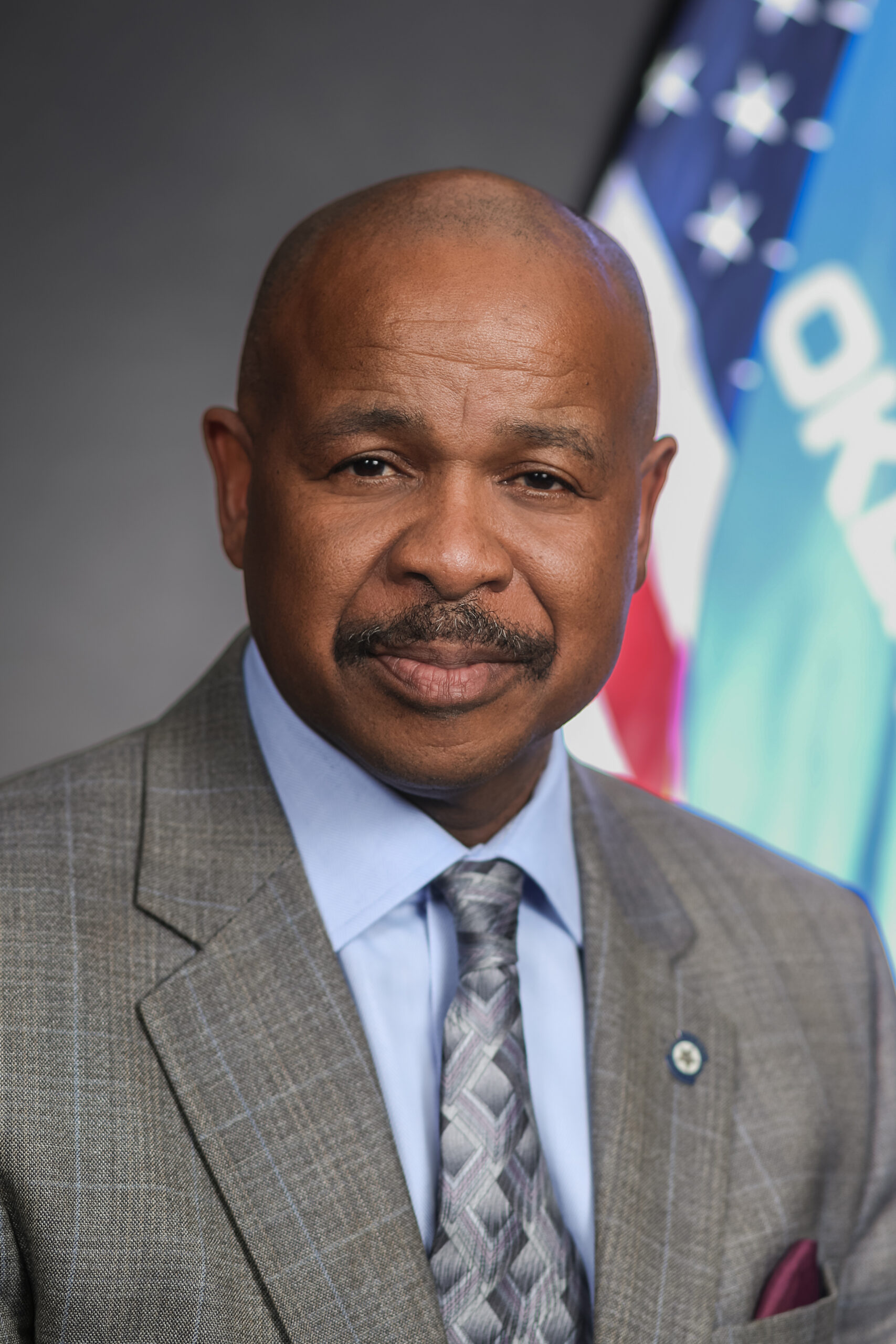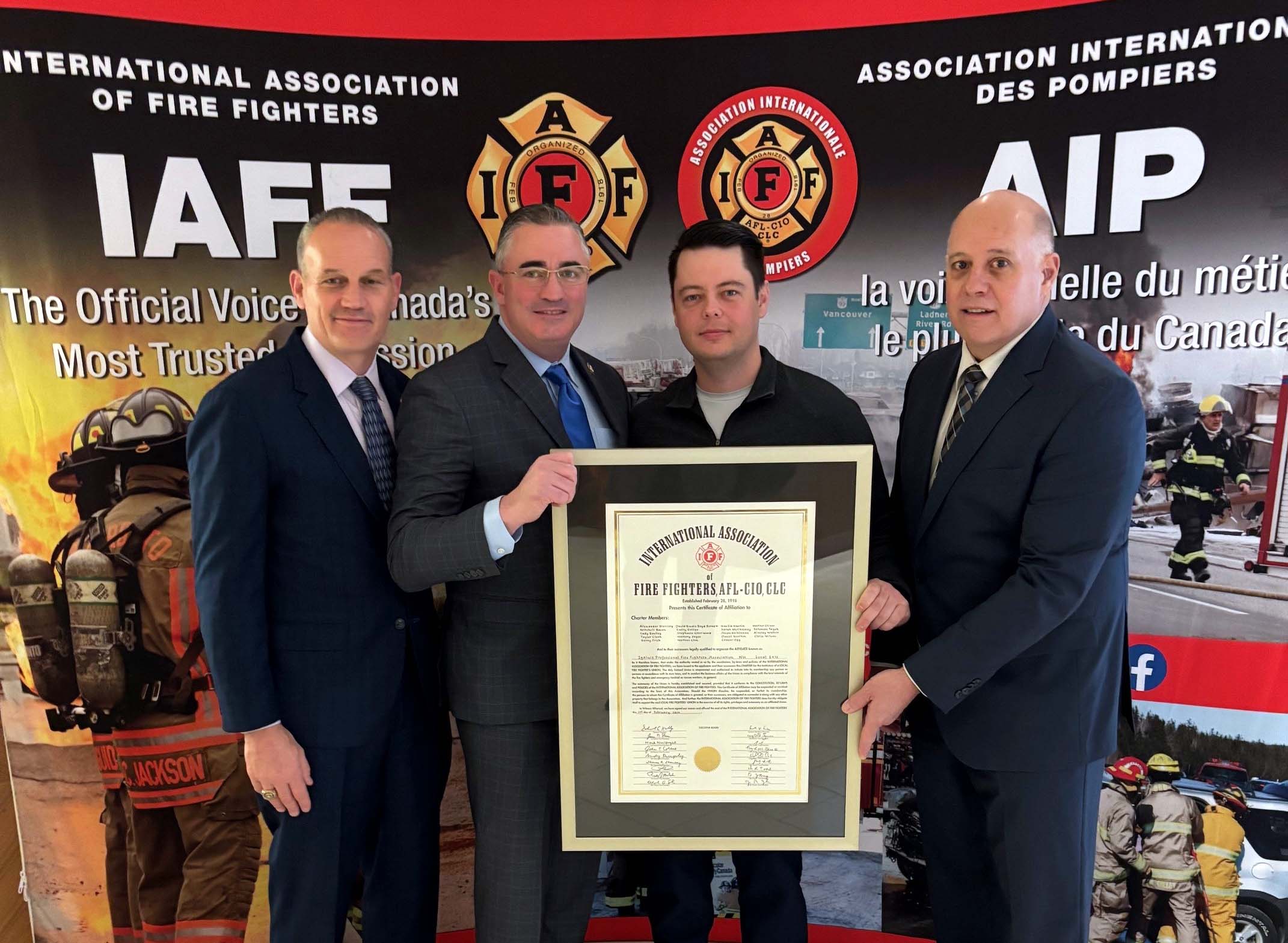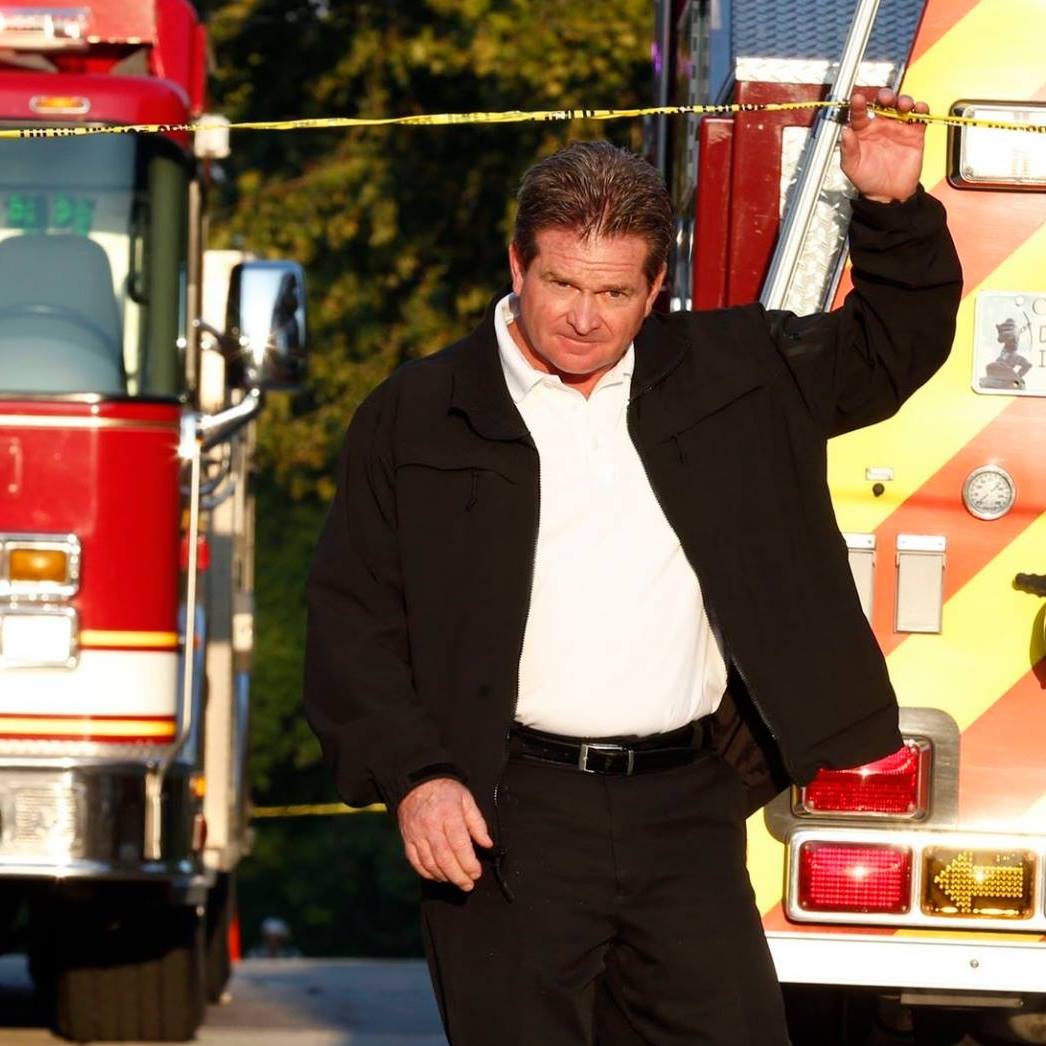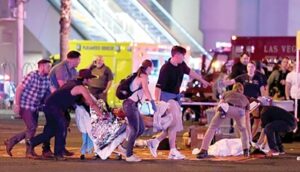
At the same time, more than 100 fire fighters and paramedics from Clark County Local 1908 responded to the mass casualty within seconds, rushing to the scene to save lives, treat and transport the wounded, help the survivors and recover those who perished. They were assisted through mutual aid by members of Las Vegas Local 1285 and Henderson Local 1883.
General Secretary-Treasurer Edward Kelly, who visited Clark County immediately after the shooting, says, “This was the greatest collective act of heroism at a single incident by fire fighters since September 11, 2001.”
With so many members living in the area — as well as others from across the country — attending the concert — information about those who responded amidst the chaotic scene are still emerging weeks after the incident. People shielding others from bullets using their own bodies, strangers carrying victims out of the area, pick-up trucks loaded with the wounded rushing to the hospital — countless stories of heroism and bravery have unfolded about the unspeakable terror of that night.
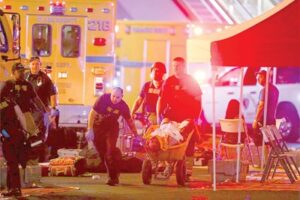
“I could not have asked for more support and assistance than what was delivered immediately following the incident,” says Thompson. “It was overwhelming and a true testament to what this union is about.”
Three IAFF members shared their personal accounts at an October 3 press conference held by the Professional Firefighters of Nevada.
Jesse Gomez, a member of Clark County Local 1908, fled with his family before returning to the scene even though his wife pleaded with him not to. “She was crying and asking me not to go back,” said Gomez. “It was one of the toughest decisions I’ve had to make.”
He saw a wounded woman bleeding from the head and stopped to help. After carrying the woman to where she could get help, Gomez — along with other concert goers — began making trips back into the line of fire to grab the injured and bring them into the street. “It was incredible how many people stayed behind to help — off-duty fire fighters, nurses, EMTs, cops — countless people trying to help,” he said.
With the massive number of victims, people were using fences, tarps, trash cans — anything they could use — to carry out the injured. Gomez and others also took on the incredibly difficult job of telling family members their loved ones were deceased and that they needed to leave them behind and get to safety.
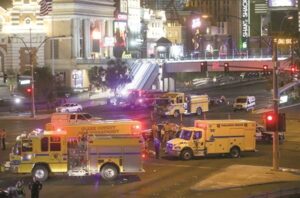
He and his daughter set up a triage area and began treating the wounded. Some of the decisions they made were extremely difficult, and included apologizing to the gravely wounded because there was nothing they could do and moving on to the next victim. “My daughter and I both went to our first counseling session,” said Kole. “The first session is just the beginning.”
Henderson Local 1883 member Anthony Robone and his brother were enjoying the music with friends when they heard shots. Anthony Robone remembers the moment vividly. “As we hunkered down, I heard my brother say, ‘I got hit,’ and I turned around and I saw my brother spitting up blood.” Anthony and a friend carried his brother, Nick, who had been shot in the chest, to the medical tents.
After finally finding an ambulance for his brother and making sure he knew where they were taking him — Anthony Robone headed back and began immediately triaging victims. “I can’t stress enough how awesome the people at this concert were, people with no medical training taking off their belts and making tourniquets — putting pressure on people’s wounds that they didn’t even know,” he said. People were listening to them triage and victims started letting those with graver injuries go ahead of them. “There was a lot of selflessness that night,” he said.
The IAFF quickly worked with affiliates across the country to organize and mobilize teams of peer support counselors to help members involved in the response to the mass shooting. Many had been through similar events, including members from Orlando Local 1365 who responded to the 2016 Pulse Nightclub shooting where 49 people were killed and 59 wounded.
Other IAFF-trained Peer Support instructors from across the country — Phoenix, New York, Los Angeles County and Los Angeles City — were deployed to provide on-the-ground support to every member involved in the shooting. “Every tool and resource we could need was put in our hands from the very beginning,” says Henderson Local 1883 President Dan Pentkowski. “We are in this for the long haul, and we are standing by our brothers and sisters.”
“Our job is not over, not by a long shot,” says 9th District Vice President Rahne. “There are upwards of 200 of our brothers and sisters who have been affected by this tragedy. The healing process — as we know — can take years. It is our duty to ensure that our members receive the behavioral health support they need and to follow through with every last one.”
State and local IAFF leadership, along with IAFF staff and Peer Support instructors met with members who had responded to the shooting just as those on shift were due for a week-long break. Members were encouraged to come back in off duty and meet with Peer Support teams. In addition, sessions were provided to fire fighters and their families, command staff, cadets and civilian staff.
“The response and support from the IAFF was nothing short of incredible,” says Professional Fire Fighters of Nevada President Angelo Aragon. “From the top down, our leadership was fully engaged in making sure our members got everything they needed after what they had experienced.”
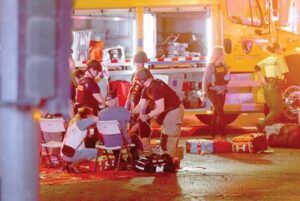
Peer Support trainers will continue to work with members as behavioral health concerns are expected to increase.
“Our brothers and sisters have been exposed to an unprecedented, horrible event,” says Las Vegas Local 1285 President Eric Littmann. “We will continue to focus on behavioral health moving forward and we expect to continue to work with the IAFF and their experts in the future as the full nature of this event takes hold.”
